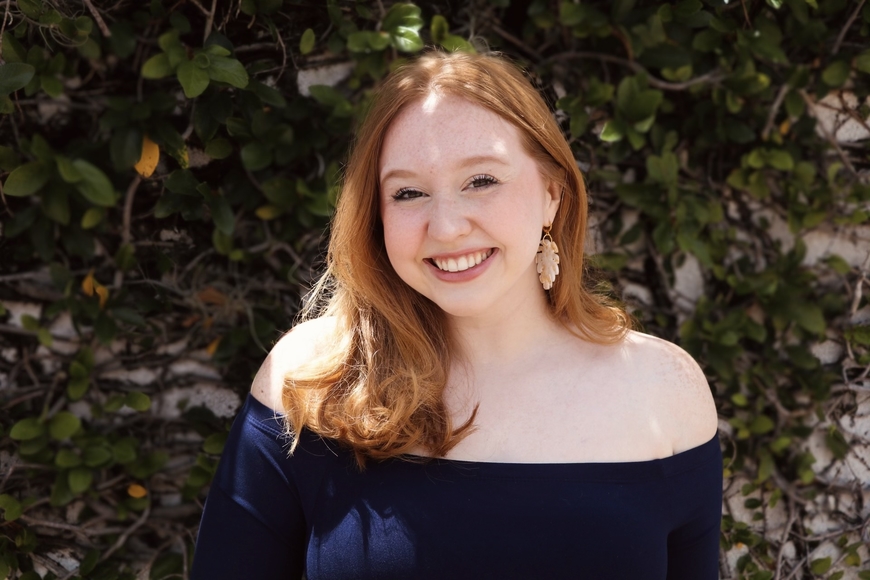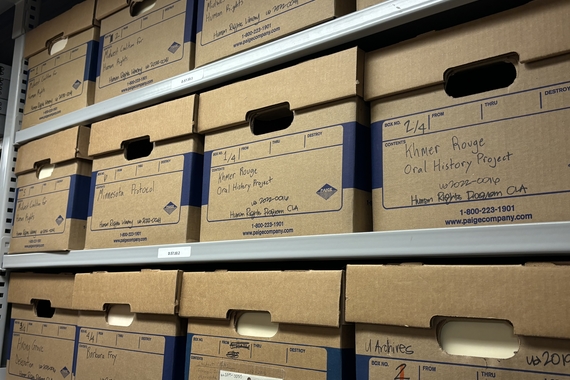Women's Rights in Conflict Zones
The Human Rights Program strongly believes in the importance of integrating professional experience with academic knowledge in the field of human rights, making internships one of the main requirements of the program. Many students, despite challenges posed by the spread of COVID-19 and challenges related to working in the field defending human rights, succeeded in doing amazing work with their host organizations. In this Q&A series, we interview our students to learn more about their experiences. In the first Q&A of the series, we are joined by Hanna Nussair, a second-year Master of Human Rights (MHR) student.
Human Rights Program (HRP): Can you tell us more about your educational background, specifically at the University of Minnesota and your professional experience? How did both contribute to your decision in choosing this particular internship and the host organization?
Hanna Nussair (HN): I’m currently in my second year of the Master of Human Rights program where I am concentrating on the rights of women and girls in a global context with a regional focus on the Arab States. Within that, I am extremely interested in the role of social advocacy in the manifestation of women’s human rights. I studied political communication for my undergraduate degree, and a large majority of my previous work experience was in the field of communication for social and political causes.
This spring, I had the opportunity to work as a Women’s Human Rights Intern at The Advocates for Human Rights where I researched COVID-19 and girls. During the research process, I became familiar with the devastating impacts that COVID-19 has had on women and girls in conflict affected areas, especially those who are trying to continue their education. Through this research I learned about Women for Women International (WfWI), a nonprofit organization based in Washington, D.C. that works to support women affected by war and conflict.
My summer communications internship at Women for Women International was a perfect match because it brought together my passion for women’s human rights and past experience in communications advocacy. Their initiative is so effective at supporting women in conflict zones, which is the main reason I love the organization.
HRP: Please describe your summer internship, the host organization, your role in that organization, and the projects you worked on?
HN: Women for Women International works with vulnerable women in the world’s most conflict-affected areas. Our eight offices in Afghanistan, Nigeria, The Democratic Republic of the Congo, Iraq, Rwanda, South Sudan, Bosnia and Herzegovina, and Kosovo work directly with women, teaching them valuable skills. Women take part in our Stronger Women Stronger Nations year-long program to learn economic tips including practical job skills and information on their own human rights. All country offices are run by locals in the community and are supported by grassroots NGO partners.
My role, as a Communications Intern, was rooted in advocacy and outreach. I had the opportunity to tell our women’s stories to our broader support base through journalistic writing, social media, and event support. I researched topics that affected women in countries where WfWI offices are located, conducted interviews with our program staff to center their voices on the issues, and educated our base around the world about their experiences. Among the topics I had the opportunity to research and write on were women’s economic empowerment, the impact of Covid-19 on women’s opportunities for education in conflict zones, women’s political participation, and gender-based and sexual violence.
HRP: How did the internship add to your professional experience and personal growth and how do you see it impact your career trajectory?
HN: My time with Women for Women International has been an incredible experience that gave me first-hand skills in communications outreach for a large international women’s rights NGO. This has been my first time working in an organization with a scope this large, especially since a majority of our work is being carried out by local actors in our eight countries of focus. The experience solidified my career path, and now I plan on working specifically in the field of human rights communication for NGOs. The organization has also now hired me as a consultant which has impacted my career trajectory tremendously.
Additionally, the experience has taught me how to work on human rights issues with an interdisciplinary lens. On a day-to-day basis, I’m speaking with so many different professionals including journalists, NGO program partners and researchers, all with different backgrounds in handling the very complex issue of gender equality for women in conflict zones. I think above all the most incredible aspect of working at WfWI, for both my professional career and in my personal growth, is seeing the impact of our work on the livelihood of women in the countries we work in. I receive so many incredible success stories from our country partners about women changing their lives through the skills and resources in our programs.
HRP: Working with women in areas of conflict is very challenging. What were the main challenges you faced during your internship on both a personal and a professional level? And how did you overcome them?
HN: The biggest challenge, similar to so much work in the human rights arena, is how devastating the weight of the issues we tackle are. After the US evacuation of Afghanistan, my role rapidly switched to crisis management efforts to support our Afghan program staff and participants. We had so many women staff on the ground in Afghanistan, and every day we worried for their safety from the unknown. It is the first time I have watched a human rights crisis like that play out with such a close impact to the lives of people I had grown to know. I can’t even imagine how it felt for staff on the ground.
It really taught me about the unspoken truth of human rights work, which is that trauma lingers if you don’t take care of yourself outside of work on a personal level. WfWI is really great about giving staff opportunities to decompress from our work, even including workshops on stress management and wellness.
HRP: Actually, your internship can be considered a success story as you managed to turn your internship into a consultancy agreement with the host organization. How did you manage to do that? And what are your recommendations for other students to make the most benefit out of their internships?
HN: During the course of my internship, I treated the internship like a crucial position on the communications team. Given my previous work in communications, I spent a lot of time researching the organization’s communication strategy and pitching ideas of my own. Also, I spent a lot of time connecting with my supervisors because they had such valuable career advice! Because of this, my supervisors were able to support and recommend me in receiving my consultancy.
My biggest piece of advice for other students is to spend a lot of time really getting to know the organization you are interning for, whether it be reading their past reports, searching their social media, or attending their events as a supporter. Having a strong knowledge base shows initiative, and enables you to provide input as someone who knows the organization as not just an employee but a supporter of the cause. Also, never be afraid to ask questions. Whether it be on the actual role or about a career in the field, the organization staff are incredibly valuable resources.



